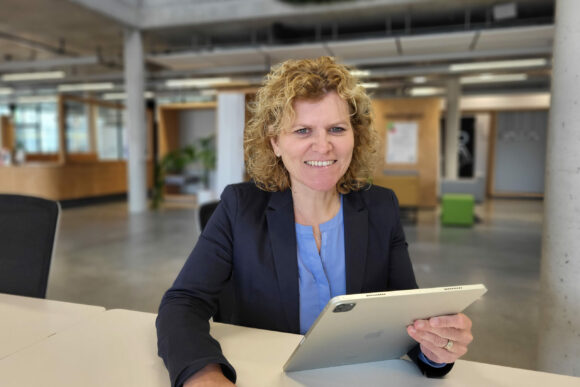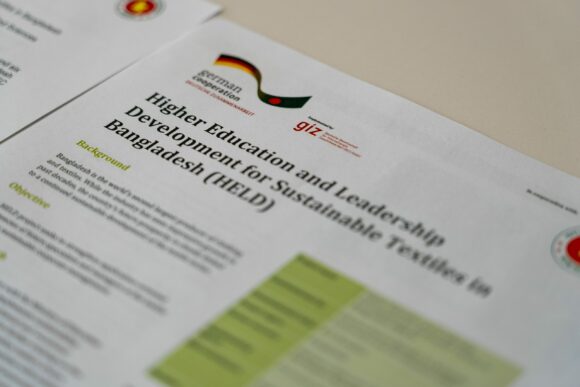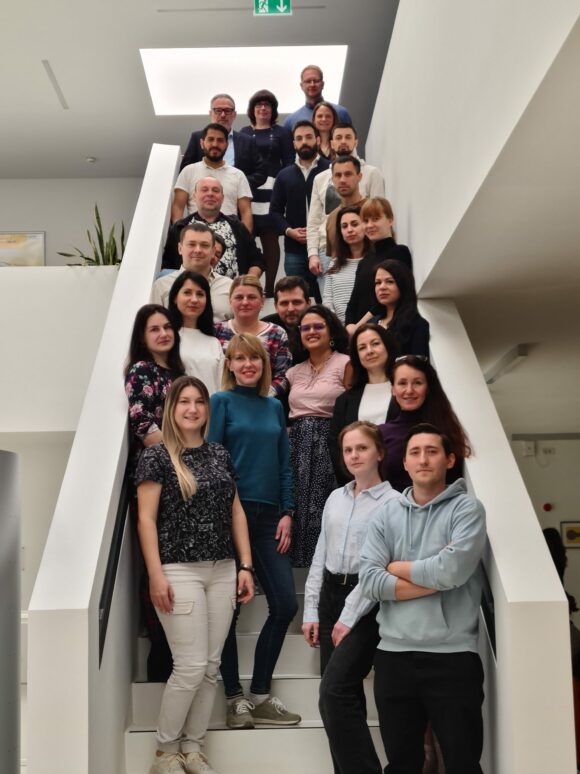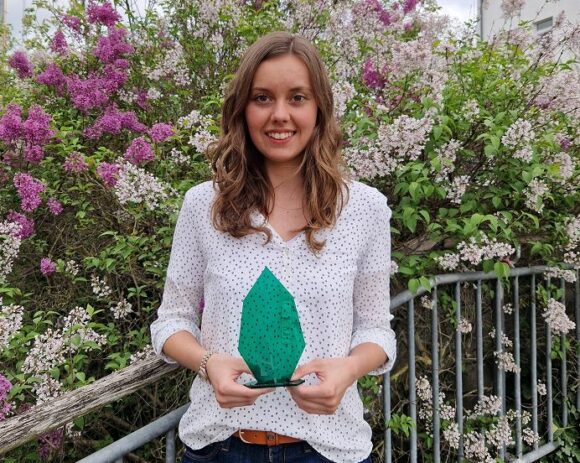The Corona pandemic naturally places high demands on universities, colleges and not least on students and staff. But like the medical sector and policymakers, the educational landscape has gathered a great deal of data and experience from teaching under the conditions of the virus since the spring of 2020
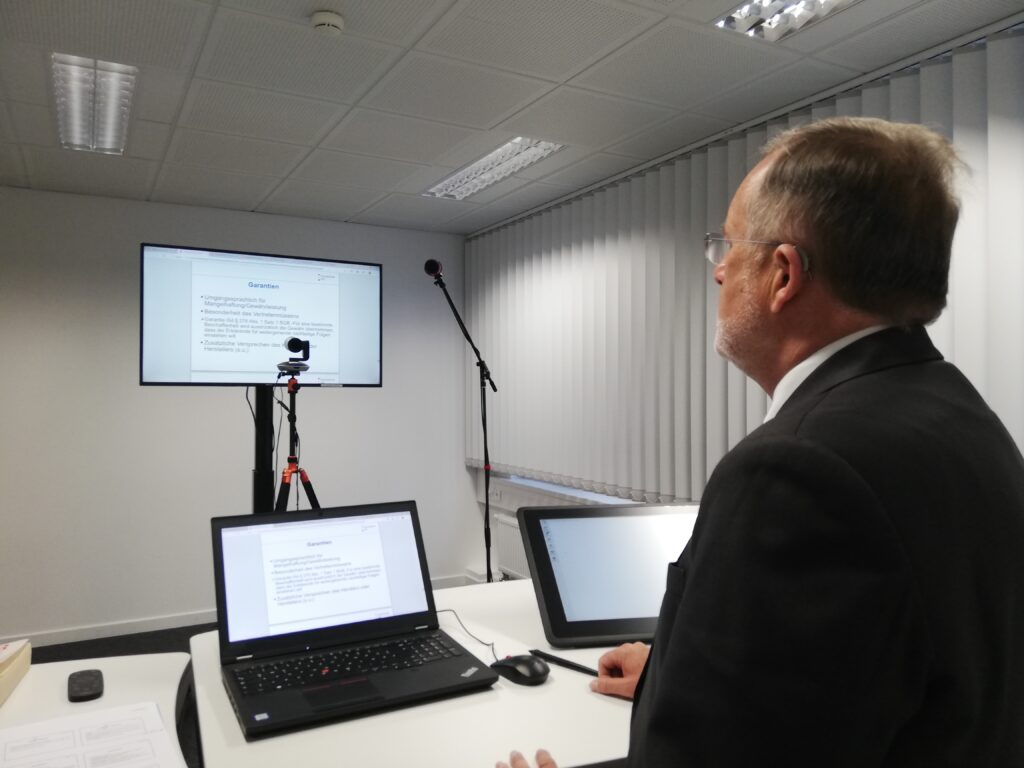
University President Prof. Dr. Dr. h.c.. Jürgen Lehmann summarizes the result from the point of view of Hof University of Applied Sciences: “The summer semester was not only very challenging in terms of digital teaching, but also an exciting field of research. For me, one thing is certain
Many of the solutions found will remain, but face-to-face teaching will remain irreplaceable in the medium and long term.”
Prof. Dr. Dr. h.c. Jürgen Lehmann, University President
It had to be lightning fast, precise and always legally reliable: German universities had to respond to the pandemic at breathtaking speed and inform their students just as quickly. According to the study “Universities, Corona and now? How universities are moving from crisis mode to new teaching strategies for the digital world” by the Stifterverband and McKinsey, 91% of teaching in Germany was offered digitally during this period – this figure is likely to be very similar again at present and due to the rise in Corona case numbers
Universities reacted quickly
The majority of German universities managed to switch from face-to-face teaching to online offerings within just two weeks in spring 2020. The same was true at Hof University of Applied Sciences, where online and hybrid offerings were implemented at a rapid pace. The university’s good fortune: “We were very well equipped technically, we set up a complete studio where we could record lectures, and overall we were much further ahead than many other universities,” says the university president.
Personal exchange is lacking
As a follow-up, the students’ experiences have now been evaluated. The results are similar in many respects to the Germany-wide study: overall, teachers and students are very satisfied with the flexibility of their university. Nevertheless, many stated that learning had become more complicated with the digital offerings. In particular – and this can also be read in the nationwide study – personal interaction with lecturers and discussions with other students on campus are missed.
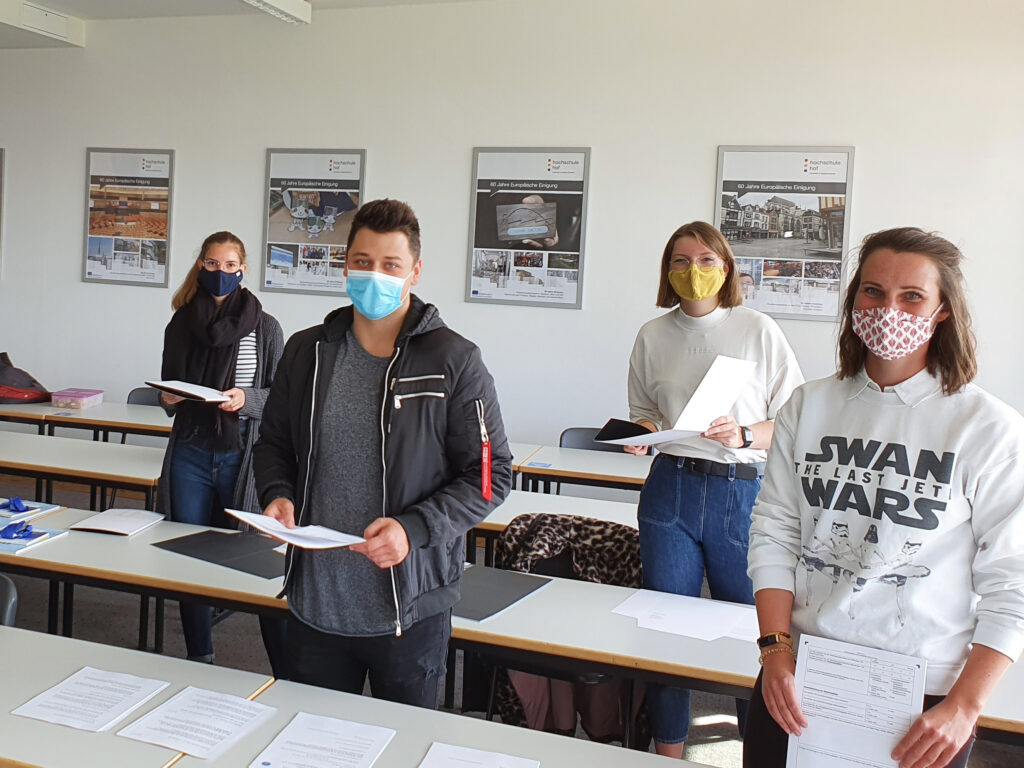
The future lies in interlinking
“The conversion to online teaching has worked very well overall, both quantitatively and qualitatively,” also says Prof. Dr. Dietmar Wolff, Vice President of Teaching at Hof University of Applied Sciences. And further: “The technical solutions will also influence everyday university life after Corona, they have reinforced a trend
Technology makes us more flexible and more digital – but for all the enthusiasm for location-independent offerings, please don’t forget that we are in a special historical situation.
Prof. Dr. Dietmar Wolff, Vice President Teaching
Digital teaching offers are therefore a good addition even after the pandemic, but they can by no means completely replace face-to-face teaching, according to Prof. Dr. Wolff. The future lies in a sensible combination of both forms of teaching.
Teachers open to online offerings
Despite this realization, there is no fundamental rejection of online lectures on the part of the lecturers; on the contrary: 75 percent of the lecturers are positive or rather positive about digital teaching. According to the McKinsey study, a majority can imagine offering every third course in digital form in the future. Many also have the necessary digital skills
Many influencing factors
Whether online teaching is viewed positively or negatively among students apparently depends on many factors, such as the subject studied and the size of the group: “It’s clear that the larger the lecture would actually be, the more positively it is viewed if you have the option of watching it online instead. However, the higher the practical component – this applies in particular to small and very small learning groups – the more the desire for a face-to-face event grows,” says university president Prof. Dr. Dr. h.c. Lehmann. And he continues: “It has been confirmed that knowledge can be imparted online, but competencies cannot. We are a university of applied sciences and teaching doesn’t work at a distance in the long run.”
Increasing dissatisfaction with laptop learning experience
This assessment is also confirmed in the nationwide surveys. Here it can be seen that the longer purely digital teaching lasts, the more dissatisfied students ultimately were with their learning experience.
Requirements of the ministry decide
At the beginning of the 2020/21 winter semester, Hof University of Applied Sciences therefore returned a bit more to normal operations. Accordingly, a balanced ratio of presence and online was planned in the higher semesters. For first-semester students, a presence ratio of between 70 and 80 percent was even intended. However, these goals are always dependent on the current specifications of the Bavarian state government and the responsible ministries: “The last specification we have is the 1.5 meter distance. With an auditorium that had room for 200 people before Corona, we can therefore only let in a small fraction. However, after the meanwhile increased number of cases, also the lecturers have to wear a mouth and nose protection, which can also lead to the fact that lecturers in the lecture hall can hardly be understood in the back rows. With a heavy heart, we have therefore decided to hold the majority of lectures online again – only laboratory practicals and individual smaller courses can still be held in presence.” Of course, the university is always keeping an eye on developments. If the situation improves, new decisions will be made accordingly
Exceptions are intended to ease the situation
Beyond that the university yard will continue to do also everything, in order to become fair the special situation straight also opposite the students, insure the responsible persons. For this reason the senate of the university had already decided for the summer semester an amendment statute with various easements and exceptions. This is in parts also in the now current winter semester further valid.
Further information:
- Study “Universities, Corona and now?” by Stifterverband and McKinsey
- Hygiene concept ofthe Hof University of Applied Sciences
- “University Teaching in the Post-Corona E ra – Study of the Bavarian Universities of Applied Sciences Summer Semester 2020 with Management Summary




